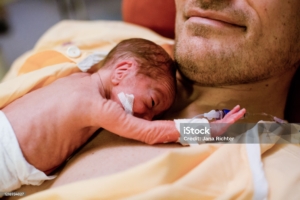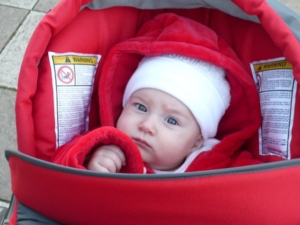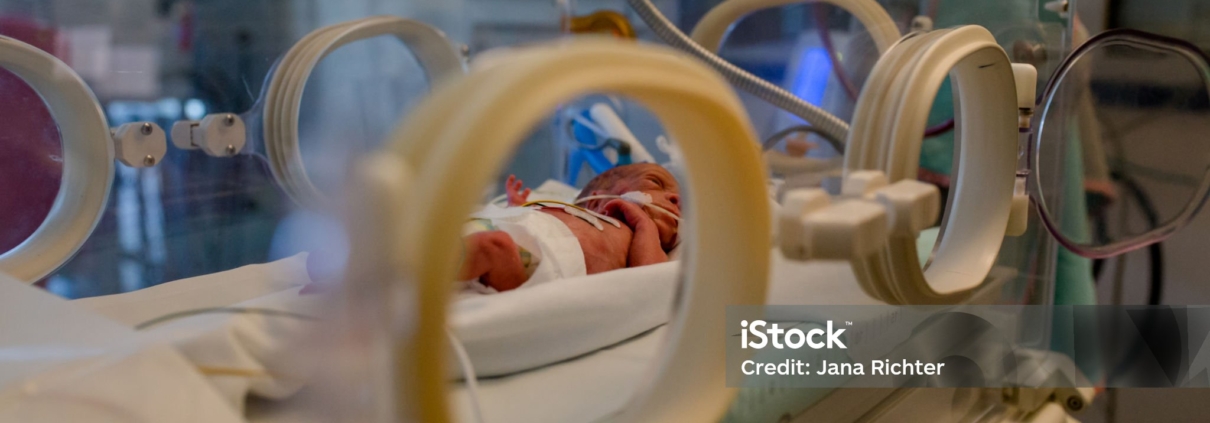When Life Begins Too Early: The Psycho-Emotional Reality of Parents of Premature Babies
Introduction: The World You Don’t Choose
No one imagines becoming the parent of a premature baby. No one dreams that the first embrace will be replaced by beeping machines, that the first photos will be taken in the intensive care unit, that the first prayer will not be for joy, but for survival.
I have stood beside the incubator and felt time stop. I have breathed in fear with every breath my child took. I have listened to every word of the doctor with a heart breaking apart. And I have known that painful distance – wanting to be close, but feeling far away, separated by glass, by gloves, and by my own terror.
And I want to tell you right from the start: you are not alone. What you feel – guilt, anxiety, confusion, isolation – is not your weakness. It is a normal human response to an unbearably heavy situation.
The Psychological Trauma of Premature Birth
From a psychotherapeutic perspective, premature birth is a traumatic event – sudden, unexpected, and associated with the threat of death.
Research in neonatal psychology shows that:
-
Mothers of premature babies have an increased risk of developing post-traumatic stress disorder (PTSD) – nightmares, intrusive thoughts, constant anxiety.
-
Fathers often develop hidden depression and heightened irritability, which remain unnoticed because their social role expects them to be “the strong ones.”
-
Levels of anxiety among parents of premature babies are many times higher than those of parents of full-term babies.
This is not just a “difficult start.” It is a shock that changes the way you perceive the world and yourself.
Guilt: The Inner Judge
I clearly remember those first days – that thought that wouldn’t let me rest: “Am I to blame?”
How could I allow this to happen? My body failed – it betrayed me. Was I too stressed, too busy, too… everything?
Guilt is like an inner judge who never stops accusing you. Even when the doctors said, “There is nothing you could have done. This just happens,” the inner voice insisted: “You failed.”
Guilt in parents of premature babies is a well-documented phenomenon. It is part of the traumatic reaction – the mind searching for a cause to restore the illusion of control. Because if the guilt is mine, then I have an answer. If it is just chance – then I am powerless.
But the truth is that in the vast majority of cases, premature birth has nothing to do with any mistake by the mother or father. These are complex medical and biological processes that cannot be predicted or prevented.
Anxiety: Living in Constant Readiness
Anxiety was my constant companion. I listened to every sound from the machines. If the monitor beeped – my heart stopped. If my baby’s breathing changed – panic. I slept with the phone next to me, even when I was at home.
And the worst part – I couldn’t relax even in the good moments. Even when the doctors said: “There is improvement,” I thought: “Yes, but tomorrow it could change.” I was terrified to say that I had given birth. I had decided that until I was told my baby was safe, I would not tell anyone.
Parents of premature babies live in a state of constant anxiety. Every update from the doctor, every monitor reading, every breath of the baby can shake them or give them hope.
Scientific data show that:
-
Levels of anxiety among parents of premature babies are up to three times higher compared to parents of full-term babies.
-
Many mothers and fathers report somatic symptoms – insomnia, panic attacks, tightness in the chest.
-
Even after discharge, anxiety may persist for years – every cold or fever can feel like a potential danger.
Anxiety also has a protective function – it keeps the parent alert and ready. But when it becomes chronic, it exhausts and turns the joy of parenthood into a constant state of readiness for disaster.
This is hypervigilance – one of the symptoms of trauma. The psyche lives in permanent anticipation of danger. For parents of premature babies, this anxiety often continues long after discharge. Every sneeze, every cough can feel like a signal of catastrophe.
Normalizing anxiety is important. It is not proof that something is wrong with you – it is proof that you love, that you fight, that you are finely attuned to your child.
Isolation: “We Are Not Like the Others”
When my friends posted photos of happy babies at home, I didn’t know if I could share a photo of mine – surrounded by tubes, with a tiny oxygen mask.
I felt like I lived in a parallel world. In my world, joy and fear coexisted, but those around me could not understand. Some said: “Don’t worry, everything will be fine.” Others exaggerated the drama. And I just needed someone to be there with me and endure the silence.
Socially, parents of premature babies often fall into isolation. They cannot take part in the typical joys of other families – first walks, gatherings, photo sessions. The photos from the intensive care unit look different – instead of a smiling baby, parents see a small body surrounded by machines and tubes.
This creates a sense of “otherness” that is hard to share. Friends and relatives often don’t know how to react.
Isolation is one of the strongest psycho-emotional factors for parents of premature babies. They often feel “different,” “excluded from normal life.” This feeling can lead to social withdrawal and depression.
This is why support groups are so important – when you hear another parent say: “I’ve been through this too,” suddenly the world feels less lonely.
Bonding with the Baby: Love Through Glass
I remember the first time I was allowed to place my hand on my baby’s chest. So fragile, so tiny, and yet the heartbeat pulsed with unimaginable strength.
In that moment, I realized – our bond was there. Even through the machines, even through the fear, even through the glass. My baby somehow heard me and responded.
Parents often cannot hold their baby immediately. Touch is limited. Skin-to-skin contact is a dream that comes later. Bonding is fundamental to the child’s development, and many parents fear that they “won’t be able to build a connection.”
But research shows that the bond still forms:
-
Psychological studies demonstrate that kangaroo care – skin-to-skin contact, even for minutes – reduces stress in both the child and the parent.
-
The baby recognizes the voice of the mother and father even in intensive care, and it has a soothing effect.
-
Small rituals – singing, praying, leaving a stuffed animal with the parent’s scent – build an invisible bridge of closeness.
This is love through glass – but it is real and transformative. Bonding is not destroyed – it is tested.

Premature baby born in the 28th week of pregnancy lies on Papa’s chest and raises one hand
How to Cope? Practical Guidance
-
Name your feelings. Guilt, anxiety, anger – they are all normal. When we name them, they lose some of their power.
-
Seek support. Talking to a loved one, a therapist, or joining a support group for parents of premature babies can ease isolation.
-
Create small rituals. Speak to your baby, leave a song, keep a journal. These create a thread of connection.
-
Take care of yourself. I know it sounds impossible, but your resilience is oxygen for your child.
-
Live day by day. The bigger picture may frighten you, but small victories each day build strength.
Conclusion: Hope
Being the parent of a premature baby means being thrown into a battle you never wanted. But this battle also brings out strength you never knew you had.
I have walked this path.
I know its darkness, its loneliness, its terror. But I also know its light – that moment when you hold your child and realize that everything you went through has brought you back to each other with an even deeper love.
And I want to leave you with this: your child feels your heart. Even through the glass, even through the fear, even when you yourself doubt. That love is the truest gift you can give.
And it is enough.

With love,
Petya Bankova




Leave a Reply
Want to join the discussion?Feel free to contribute!